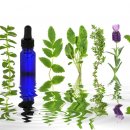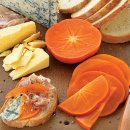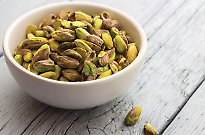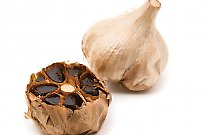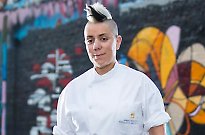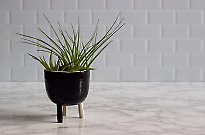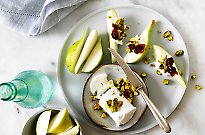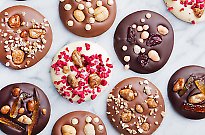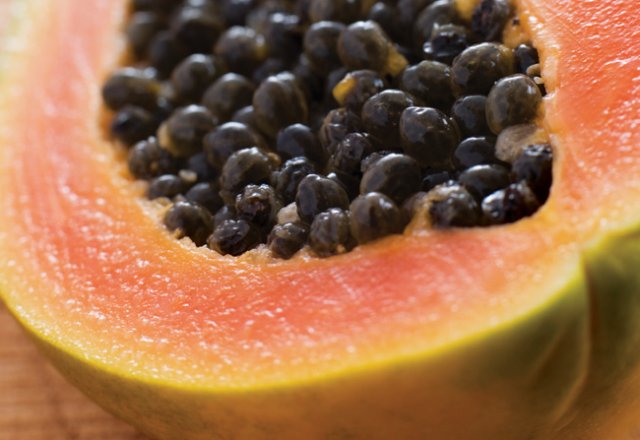
Cancer prevention
Cancer prevention

Cancer is a word that scares almost everyone. The rates of cancer have increased in recent decades and it has touched almost all of us in some way. However, it is possible to decrease your risk of getting cancer, through a healthier diet and avoiding exposure to certain environmental pollutants.
Choose Chemical free
The link between pesticides, fungicides, herbicides and cancer has long been a concern, as many of the chemicals used in agriculture to grow our food are toxic. So, a really good place to start in preventing cancer is to buy organic food. Even with the growing body of evidence linking environmental toxins to cancer in recent years, a report released in May, 2010 by the President’s Cancer Panel, found that the true burden of environmentally induced cancer is greatly underestimated.
Once you decide to go organic, or at least ‘spray free,’ you have given your body a better chance to detox efficiently, and that is by giving it less to detoxify from. Your major organs of detox – your liver and kidneys – can now do their job of cleaning up your body instead of just trying to get rid of some of the chemical residue.
We have five elimination channels working to help remove toxins from our bodies. These are our lymph glands, kidneys, skin, lungs and bowel. If one of these isn’t working properly, then the others will need to work harder (the weakest link), causing it to be burdened. So it’s important to use a non-toxic deodorant to allow the lymph system to properly eliminate, not block perspiration by using an antiperspirant. Use non-toxic skincare, body and hair care and toothpaste, and cleaning products. Drink plenty of filtered water to keep the kidneys flushing toxins properly, and ensure your bowels are eliminating effectively.
The Power of Antioxidants
Now that your body is ridding itself of toxins, it has a better chance of staying healthy and in its natural state. So what foods are going to be helpful in keeping it that way? Well, the problem is the free radicals. These are built up in our body after being consistently exposed to toxic chemicals. To neutralise these we need oxygen, and lots of it. Enter antioxidants. A food high in antioxidants and omega 3 oils have been termed ‘superfoods’ in recent times – and rightly so. These foods have the ability to go in and knock out the free radicals – the bad guys.
Quercetin is a wonderful antioxidant, that is found in abundance in onions and garlic. One onion a day is recommended for inhibiting cellular growth and garlic reduces an overgrowth of yeast.
Another food extremely high in antioxidants is raw cacao. To put it into perspective, blueberries contain about 22 antioxidants and raw cacao powder, about 621. Huge amounts. Also high on the list is all your ‘super greens’. Things like spirulina, wheatgrass and barley grass – which are available as a supplement in powder or tablet form either on their own or combined.
Increase Fibre Intake
There are so many reasons to include more legumes in your diet. They are cheap, a great source of plant protein, iron, soluble and insoluble fibre. Insoluble fibre helps to lubricate your intestines, guarding against constipation and other digestive complaints, so reduces the risk of colon and rectum cancer. It’s also handy to keep your blood sugar stable, so reducing sugar cravings.
According to traditional Chinese medicine, cancer lives in a damp environment. It’s also where candida thrives – so it’s important to keep your good bacteria flourishing and the not so good bacteria reduced. Candida (a natural yeast in our gut) loves sugar and yeast, and the whole situation thrives when your body is under stress. Refined sugar must be avoided and a good way to do this is by keeping your blood sugar stable in the first place. Include whole grains, fruit and vegies and plant protein like legumes and amaranth.
Gut Health
Keeping your gut healthy is very important in reducing your risk of cancer. You can do this by taking a good probiotic. You can also get some great fermented drinks from your health food store that help to do just this; just be sure they don’t contain refined sugar. Other helpful fermented foods wonderful for digestive health are miso, tempeh, sauerkraut, quark and kefir.
Animal products such as red meat and processed dairy such as cows milk and yellow cheese using factory farming methods create acid/inflammation in our body, so it’s very important to limit your intake of animal products. Research has shown over and over again that a diet high in animal products leads to heart disease, diabetes and many types of cancers. Many studies show that vegetarians are about 40 per cent less likely to get cancer than non-vegetarians, regardless of other risks such as smoking, body size and socioeconomic status.
Paw paw is a wonderful fruit to include regularly as it breaks down undigested animal meat, destroys parasites and dries up the internal ‘dampness’ that is so often associated with cancers.
The Good Oils
Trans fats (or hydrogenated fats) are known carcinogens. The process of bombing innocent vegetable oil with hydrogen gas – to extend its shelf life – deranges the cells in the oil, creating a highly refined and processed product that has no virtues at all. Avoid it by rejecting the foods that contain it, and this includes most take-away food from fast ‘food’ chains, your local fish and chip shop or hamburger place.
Good oils to include are omega 3 fatty acids from flaxseed, chia seeds, walnuts and hemp – these are great anti inflammatory foods – and omega 9 from olive oil. A combination of all three in perfect balance is desirable.
Because all disease is due to inflammation (too much acid) in our body, turmeric is being hailed as the new superfood thanks to its anti-inflammatory properties, and its positive effect on the liver and estrogen.
Juices are also a perfect way to get nutrients to starved cells, and quickly. Juicing vegetables, including dark green leafy vegetables and sprouts, is a great habit to be in. It doesn’t have to happen every day. A small glass a few times a week is enough. Try juicing carrot, beetroot (roots and tops cleanse the liver and blood and lubricate the intestines, so are useful for reducing constipation), parsley, kale, celery, cabbage, capsicum, sprouts, wheatgrass, turmeric, ginger and garlic.
Stress free
Stress, any way it comes, is going to create more acid in your body, so find your happy place and try to stay there as much as you can. My recommendation as always is to – eat S.L.O.W. Seasonal, local, organic and whole. This covers just about everything and doesn’t include processed and refined foods and other cancer-causing ingredients.
Your future self is created by today’s thoughts, so focus more on health and less on cancer and disease.

